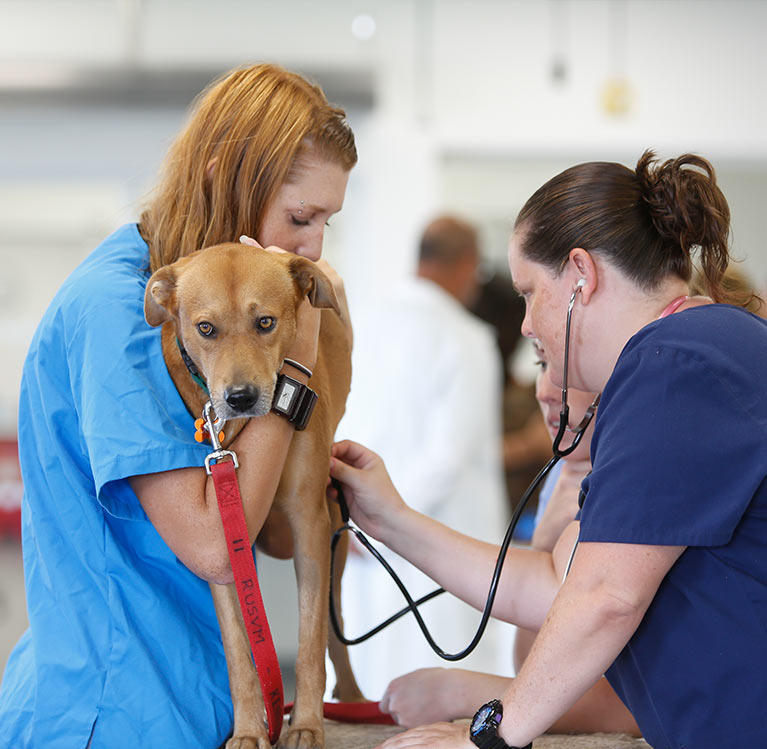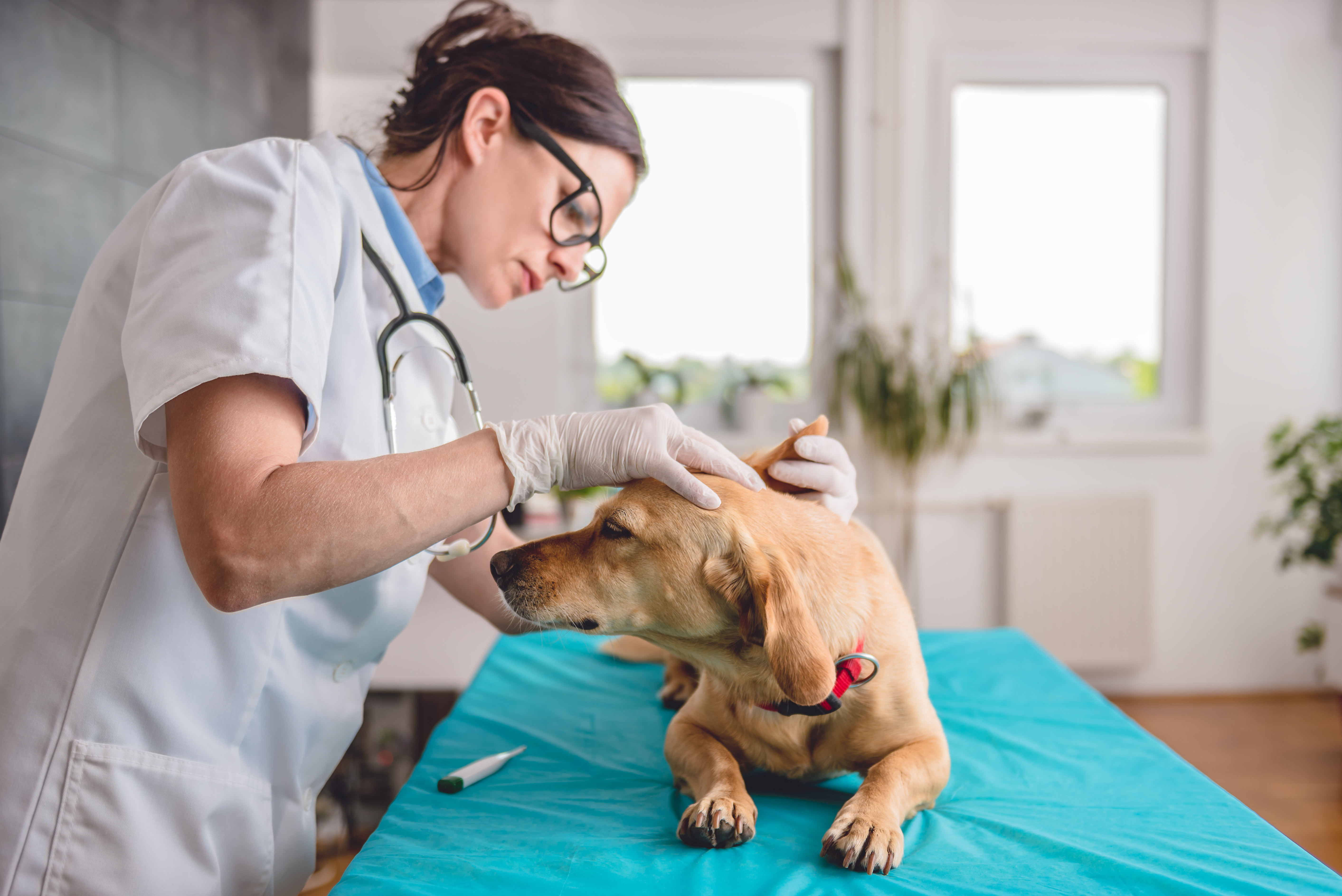How Pet Health Checkups Assist Find Very Early Indicators of Illness and Keep Your Pet Healthy
How Pet Health Checkups Assist Find Very Early Indicators of Illness and Keep Your Pet Healthy
Blog Article
Vaccination Guidelines From Your Relied On Vet
Inoculation standards supplied by your relied on veterinarian play an essential role in safeguarding your family pet's health and wellness and wellness. Core vaccines are basic for all pets, while non-core injections can be tailored to ecological exposures and specific lifestyles. Recognizing the subtleties of vaccination schedules, which begin as early as six to eight weeks, is necessary for ideal security. Additionally, attending to common misunderstandings surrounding vaccinations can even more enhance family pet owners' self-confidence in these safety nets. As we check out these crucial aspects, it ends up being increasingly clear why normal assessments with your vet are vital for informed decision-making.
Importance of Vaccinations
Inoculations play a crucial duty in guarding family pets against a series of preventable conditions. By boosting the immune system to acknowledge and fight certain microorganisms, vaccines considerably reduce the occurrence of infectious conditions that can impact an animal's health and long life. Not just do vaccinations secure private pets, but they additionally add to herd immunity, thus lowering the general occurrence of conditions in the pet dog population.
Timely vaccinations assist to minimize the spread of conditions such as rabies, parvovirus, and distemper, which can have extreme consequences for both human beings and pets. Moreover, vaccinations are commonly a requirement for boarding centers, grooming solutions, and dog parks, making them essential for those who desire to mingle their family pets.

Core Vaccinations for Pet Dogs
While the specific vaccination demands of animals can vary based upon specific elements, core vaccinations are globally advised to protect against the most common and serious illness (Veterinarian Enterprise). Core injections are those considered crucial for all animals, no matter of their way of living or geographical area, as they secure against possibly deadly and highly transmittable health problems
For pet dogs, the core vaccines consist of those for canine distemper, parvovirus, adenovirus (liver disease), and rabies. Adenovirus can result in liver disease, while rabies is a zoonotic illness that positions a threat to both humans and pets.
In cats, core vaccines incorporate feline panleukopenia, feline calicivirus, feline herpesvirus (rhinotracheitis), and rabies. Feline panleukopenia is an extremely infectious viral condition that impacts the immune system and intestines. Calicivirus and herpesvirus are significant factors to upper respiratory system infections in cats, while rabies remains a vital concern for public health.
Seek advice from your vet to ensure your pet dogs get their core vaccinations on schedule.
Non-Core Vaccines Explained
Non-core vaccinations are tailored to address details threats connected with a pet's exposure, setting, and way of living to particular conditions. Unlike core injections, which are widely advised for all family pets, non-core vaccines are taken into consideration based on individual circumstances. These injections are especially vital for family pets that might encounter one-of-a-kind virus due to their geographical place, traveling practices, or activities.
Instances of non-core injections include those for Bordetella bronchiseptica, which is linked to kennel cough, and Lyme disease, brought on by ticks. Family pets that regularly interact with various other pets, such as those in boarding facilities, pet parks, or grooming atmospheres, might profit from Bordetella vaccination. Likewise, if you stay in a location where Lyme disease prevails, vaccinating against this disease can be a prudent choice for outdoor-loving pets.
Other non-core vaccines may consist of those for leptospirosis, canine flu, and feline leukemia, relying on the particular danger elements present. It is important to have a detailed conversation with your veterinarian concerning your pet dog's lifestyle and the possible demand for these vaccines, making sure a customized vaccination approach that best protects your fuzzy buddy.
Vaccination Set Up Summary

As pets grow, it is essential to stick to the recommended booster inoculations. Emergency Vet. For adult animals, core injections are commonly offered each to three years, depending on the details vaccination and local guidelines. Non-core vaccines might be advised based on lifestyle aspects and local condition frequency, necessitating a tailored strategy
Routine veterinary check-ups are essential for upgrading vaccination timetables. Your vet can offer guidance on one of the most proper booster shots for your family pet, factoring in age, health and wellness status, and ecological threats. By staying aggressive and notified, animal proprietors can guarantee their fuzzy companions get reliable and prompt vaccinations, therefore guarding their health and health throughout their lives.
Common Misconceptions About Vaccines
Mistaken beliefs concerning family pet vaccinations can bring about complication and hesitation amongst animal owners concerning the immunization procedure. One prevalent myth is that injections are unneeded for indoor family pets. While it's real that indoor pet dogs encounter lower dangers, they are not totally immune to conditions, as microorganisms can be presented through various ways, consisting of human garments and other pet dogs.
Another mistaken belief is that vaccinations can create the conditions they aim to avoid. In truth, the majority of injections have suspended or attenuated virus, which can not cause illness in healthy pets. Some pet owners also believe that their pets ought to not be immunized if they are already healthy; however, vaccinations are an aggressive action that helps avoid the onset of illness.
Furthermore, lots of pet dog proprietors are afraid that vaccinations will lead to long-term health problems. The benefits of vaccination-- securing pet dogs from possibly serious diseases-- far outweigh the risks.
Conclusion
In summary, adherence to vaccination standards is critical for making certain the health and longevity of animals. Core vaccines offer vital security against significant conditions, while non-core vaccinations attend to certain dangers based on specific way of livings. Establishing a thorough vaccination schedule, combined with routine veterinary check-ups, facilitates optimum health monitoring. Resolving typical myths bordering vaccinations further enhances the value of informed decision-making in pet treatment. Eventually, a proactive technique to vaccinations is vital for keeping animal health.
Not only do inoculations protect specific animals, however they also contribute to herd resistance, consequently reducing the total prevalence of conditions in the animal populace.
Misconceptions regarding pet vaccinations can lead to complication and reluctance among pet dog owners regarding the immunization process. While it's real that interior pets deal with pop over to this web-site reduced threats, they are not completely immune to illness, as virus can be presented through different ways, consisting of human clothing and other pets.
Some family pet proprietors also believe that their family pets need to not be vaccinated if they are already healthy; nevertheless, inoculations are a proactive you could try this out measure that assists stop the start of illness.
The benefits of vaccination-- safeguarding family pets from possibly deadly illness-- far exceed the dangers.
Report this page